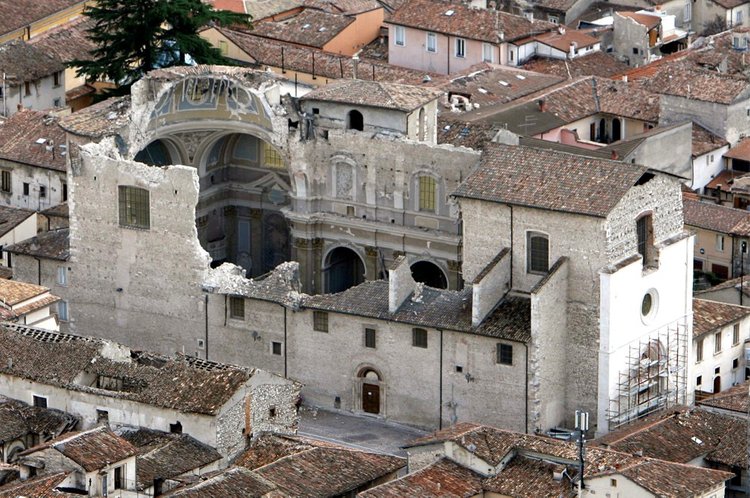
Historic Cities in the Face of Disasters
Mon 22 November 2021
18:30 -19:30
In a post-disaster situation, whether as a result of destructive natural or human-induced hazards, the interrelations of historic urban contexts, social, psychological and economic factors present a highly complex scenario for decision makers, practitioners and affected communities and individuals.
This complexity requires multi-perspective and multi-disciplinary approaches with the participation of peoples and communities to ensure that the solutions to these interrelationships are sustainable and resilient. There remains a need for greater reflection, analysis and discussion of the issues as these publications begin to explore.
2019 marks the tenth anniversary of the L’Aquila earthquake which devastated the city and its historic centre, affecting over 100,000 people who lived in the city and its surrounding areas. While rebuilding work is ongoing, economic and social recovery is struggling. Hence the need to bring together global knowledge and offer new perspectives and strategies on linking urban processes, reconstruction approaches and heritage issues and to push the traditional theoretical and practical boundaries in order to improve the future of post-crisis reconstruction in historic cities.
This event and panel are organised by Silk Cities, an independent professional and academic initiative for contextual knowledge, exchange, research, and advocacy. The Silk Cities initiative is concerned with contextual urban challenges that historical cities in countries along the historic Silk Roads face within the process of urban transformation, as a result of their historic past. Those most concerned are urban heritage, disaster risk reduction, and post-crisis reconstrcuction, urban design, and public spaces, community development, as well as urban development management. By using the narrative of the urban Silk Roads, the group taps on the notions of connectivity and exchange, historical presence that is reflected in city characteristics and urban life, and contextual contemporary challenges. Silk Cities' initial focus area has been these cities in the Middle East and Central Asia.
Panel:
Dr. Ann-Marie Akehurst (York and SAHGB)
Dr Husam Al Waer (Reader in Sustainable Urban Design, University of Dundee)
Helin Can (Bauhaus–Universität, Weimar)
Chaired by Prof. Cassidy Johnson (UCL)

General Info
Organiser